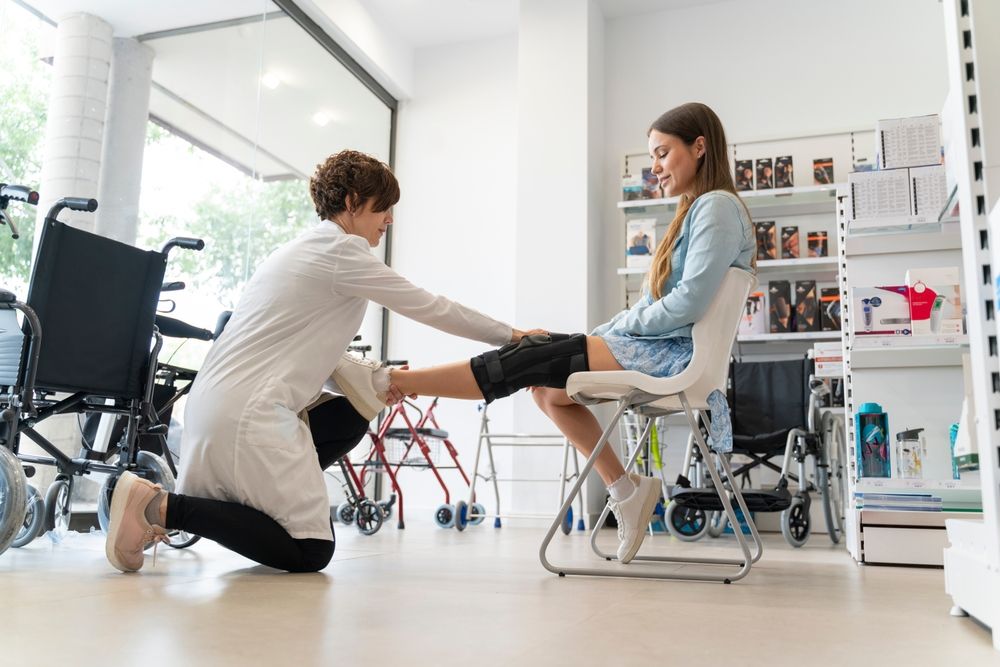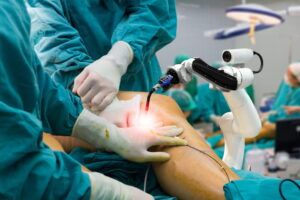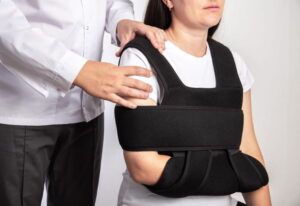At Premier Orthopaedics & Sports Medicine, P.C., we specialize in caring for the musculoskeletal system. This complex network enables us to perform everything from daily activities to high-performance sports. With locations in Bloomfield, Englewood, and Union City, NJ, our team is dedicated to providing expert care and treatment for all your orthopedic needs.
The Musculoskeletal System: A Marvel of Human Anatomy
The musculoskeletal system is an extraordinary and intricate structure composed of bones, muscles, cartilage, tendons, ligaments, and other connective tissues. It is the body’s framework, providing support, stability, and mobility. Here’s a closer look at its key components:
- Bones: The human skeleton comprises 206 bones that provide structural support and protect vital organs. Bones also produce blood cells and store minerals such as calcium and phosphorus.
- Muscles: Over 600 muscles in the body facilitate movement by contracting and relaxing in response to signals from the nervous system. Muscles are classified into three types: skeletal, smooth, and cardiac, each with distinct functions.
- Cartilage: This flexible, rubbery tissue covers and cushions the ends of bones at joints. It reduces friction and absorbs shock during movement, which is crucial to joint health.
- Tendons and Ligaments: Tendons connect muscles to bones, enabling movement, while ligaments connect bones to other bones, providing stability and support to joints.
- Connective Tissues: These tissues, including fascia and synovial membranes, support and protect organs, fill spaces between muscles, and maintain the structural integrity of the musculoskeletal system.
The Importance of the Musculoskeletal System
The musculoskeletal system is vital for a myriad of functions:
- Movement: By contracting and relaxing, muscles work with bones to facilitate movement, allowing us to perform tasks ranging from walking to playing sports.
- Support: Bones provide the body with a structural framework, supporting muscles and organs.
- Protection: Bones safeguard vital organs, such as the brain, heart, and lungs, from injury.
- Mineral Storage: Bones store essential minerals, including calcium and phosphorus, which can be released into the bloodstream.
- Blood Cell Production: The bone marrow produces red and white blood cells, which are crucial for oxygen transport and immune function.
Common Musculoskeletal Disorders
The musculoskeletal system is susceptible to various disorders and injuries despite its remarkable resilience. Understanding these conditions is the first step toward effective prevention and treatment. One of the most common issues is osteoarthritis, a degenerative joint disease that occurs when cartilage wears down over time, causing pain, stiffness, and reduced mobility. It commonly affects weight-bearing joints such as the knees, hips, and spine. Another condition is rheumatoid arthritis, an autoimmune disorder in which the immune system attacks the synovial lining of joints, leading to inflammation, pain, and potential joint deformity. It often affects the hands, wrists, and feet.
Osteoporosis is characterized by weakened bones due to decreased bone density, making them more prone to fractures. It is often called a “silent disease” because it progresses without noticeable symptoms until a fracture occurs. Tendonitis, the inflammation of a tendon, is typically caused by repetitive motion or overuse, with common sites including the shoulder (rotator cuff tendonitis), elbow (tennis elbow), and knee (patellar tendonitis).
Sprains and strains are common injuries where sprains involve ligament injuries, and strains involve muscle or tendon injuries. These conditions can result from sudden twisting movements or excessive force, leading to pain, swelling, and limited movement. Fractures occur when a bone breaks due to trauma, excessive force, or conditions like osteoporosis. They vary in severity, from hairline fractures to complete breaks, and require proper medical intervention for healing. Lastly, back pain is a prevalent condition often caused by muscle strain, herniated discs, or spinal abnormalities. It can range from mild discomfort to debilitating pain, impacting daily activities and quality of life.
Innovative Approaches to Orthopedic Care
Premier Orthopaedics & Sports Medicine, P.C. offers cutting-edge treatments tailored to each patient’s unique needs. Our holistic approach ensures comprehensive care, from diagnosis to recovery. Accurate diagnosis is the foundation of effective therapy. Our practice utilizes state-of-the-art imaging technologies like MRI and ultrasound to identify musculoskeletal issues and devise personalized treatment plans precisely. Many musculoskeletal conditions can be managed without surgery through physical therapy, which strengthens muscles and improves flexibility, or corticosteroid injections, which alleviate inflammation and pain. These approaches promote healing and enhance the quality of life.
When surgery is necessary, our skilled orthopedic surgeons employ minimally invasive techniques to reduce recovery time and optimize outcomes. From joint replacements to arthroscopic procedures, our team ensures the highest level of care and expertise. Rehabilitation plays a pivotal role in restoring function and mobility. Our physical therapists work closely with patients to develop tailored rehabilitation programs that enhance recovery, prevent future injuries, and improve overall musculoskeletal health. Sports-related injuries require specialized care to ensure athletes return to peak performance. Our sports medicine experts provide comprehensive evaluations, treatment, and training programs tailored to each athlete’s needs, ensuring a safe and effective recovery process.
Why Choose Premier Orthopaedics & Sports Medicine, P.C.?
Choosing the proper orthopedic care is essential for optimal health and well-being, and at Premier Orthopaedics & Sports Medicine, P.C., we strive to be the best choice for your needs. Here’s why we stand out:
- Expertise and Experience: Our team of highly skilled orthopedic specialists brings extensive experience in diagnosing and treating various musculoskeletal conditions. We stay at the forefront of orthopedic medicine by continuously updating our knowledge and techniques, ensuring you receive the best care possible.
- Personalized Approach: We recognize that every patient is unique and tailor our treatment plans to reflect this individuality. By customizing care to meet your needs and goals, we guarantee the best possible outcomes and ensure your satisfaction throughout treatment.
- Comprehensive Care: From the initial diagnosis to post-treatment rehabilitation, we provide a full spectrum of services to address every aspect of your musculoskeletal health. Our multidisciplinary approach allows us to deliver holistic care, all conveniently available under one roof.
- Commitment to Patient Education: At Premier Orthopaedics, we believe that informed patients make better decisions about their health. We are committed to educating you about your condition and the available treatment options, empowering you to take an active role in your care journey.
Your Path to Pain-Free Living
Understanding the musculoskeletal system is the first step towards a healthier, more active life. At Premier Orthopaedics & Sports Medicine, P.C., we are committed to helping you achieve optimal musculoskeletal health through expert care, innovative treatments, and personalized attention. Whether you’re dealing with a sports injury, chronic pain, or simply seeking to enhance your well-being, our team is here to support you on your journey to pain-free living.
Visit us at our Bloomfield, Englewood, and Union City, NJ locations to experience exceptional orthopedic care that prioritizes your health and happiness. Schedule an appointment today and take the first step towards a healthier, more active you.
Sources:
- Reuben, D. B., & Siu, A. L. (1990). An Objective Measure of Physical Function of Elderly Outpatients: The Physical Performance Test. Journal of the American Geriatrics Society.
- Deyo, R. A., & Weinstein, J. N. (2001). Low Back Pain. New England Journal of Medicine.




